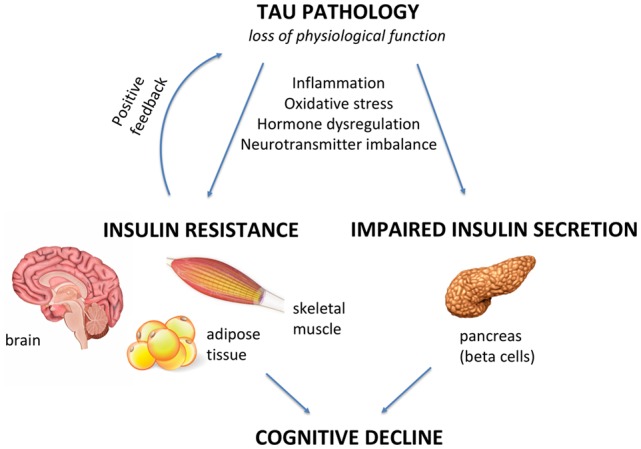Figure 1.

Tau pathology as a mediator of insulin resistance and cognitive and metabolic alterations. Under pathological conditions, Tau loss of function can negatively impact the brain and peripheral tissues, such as skeletal muscle, adipose tissue and pancreas. In this review article, we explore the hypothesis of Tau pathology being a key inductor of insulin resistance and beta cell dysfunction in Alzheimer’s disease (AD) and other tauopathies. When defective insulin signaling is present in the brain, it triggers neurodegeneration and cognitive decline. On the other hand, when it is present in peripheral tissues, it leads to a diabetes-like phenotype. Inflammation, oxidative stress, hormonal dysregulation and neurotransmitter imbalance are mechanisms that can lead to/aggravate Tau pathology-induced alterations in insulin signaling/secretion in the brain and in the periphery, which are further associated with cognitive defects.
